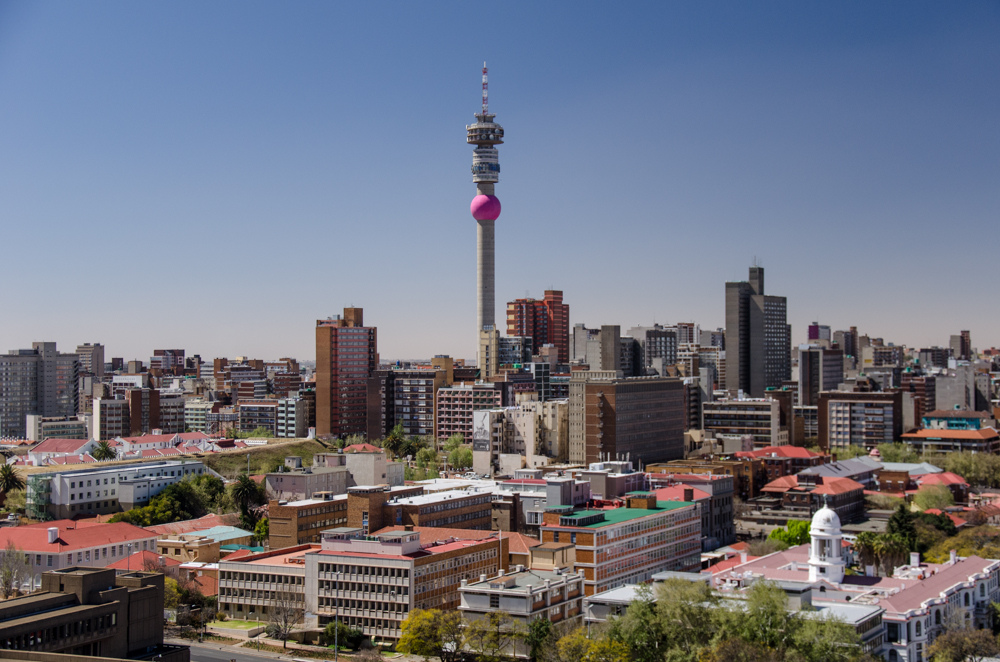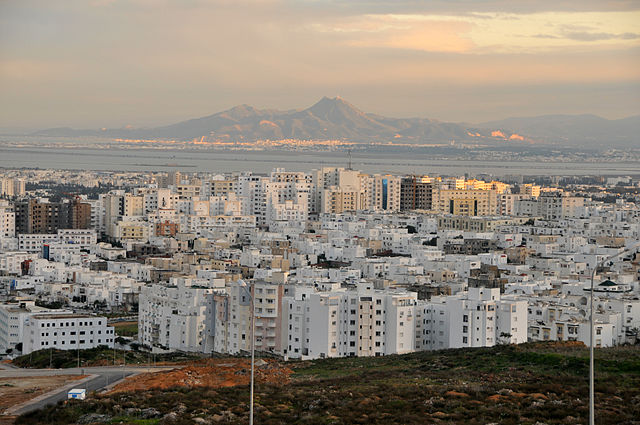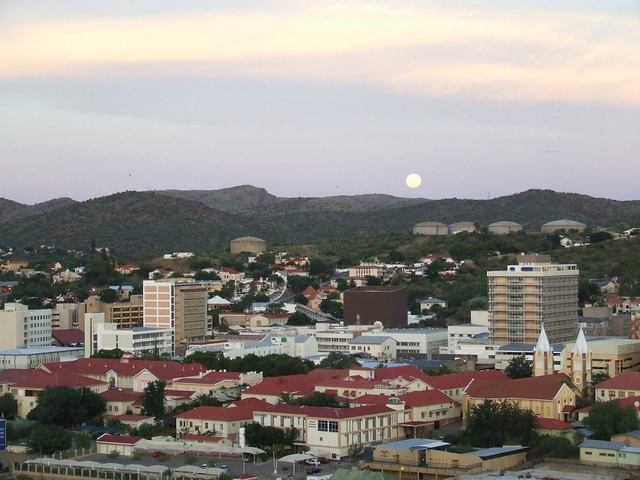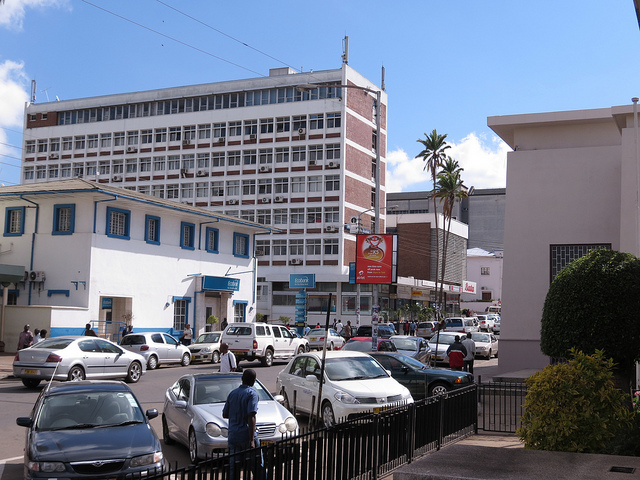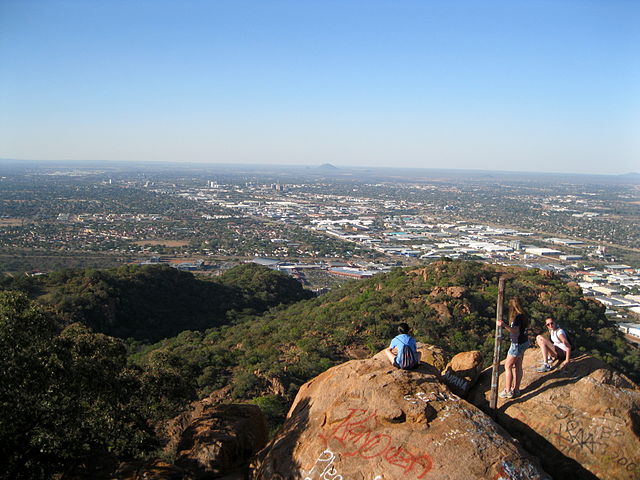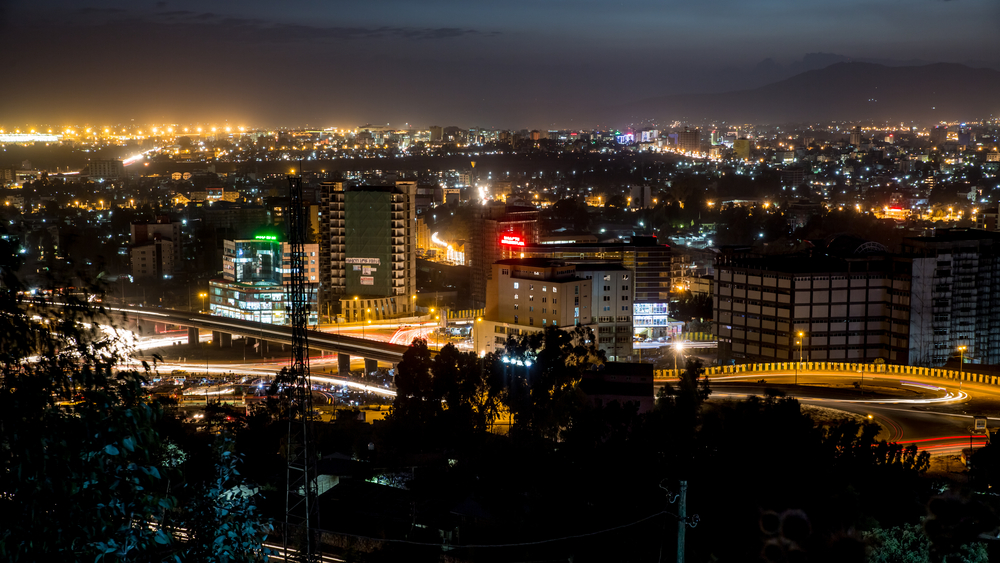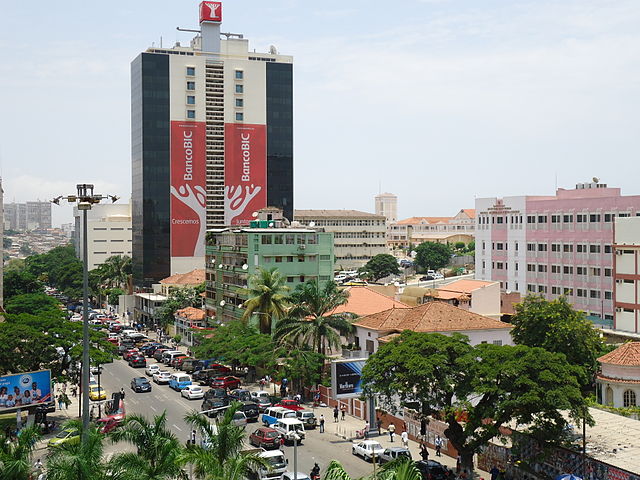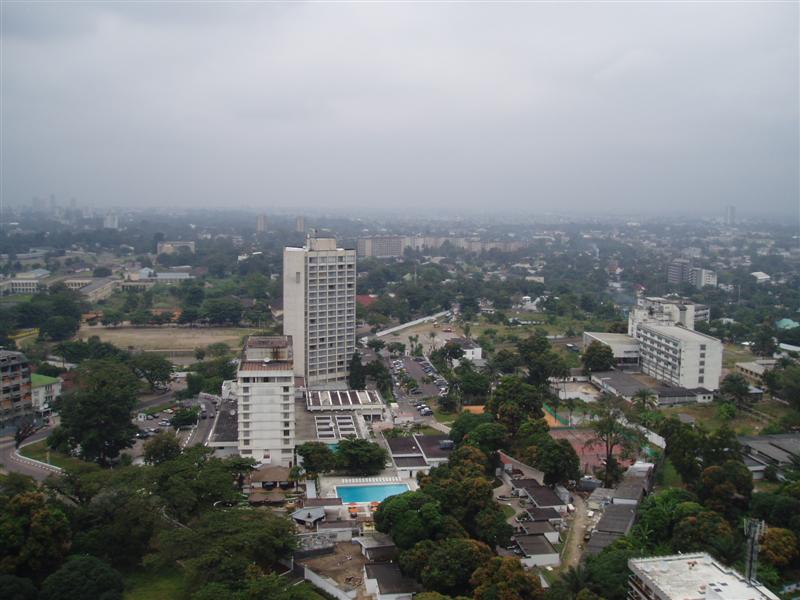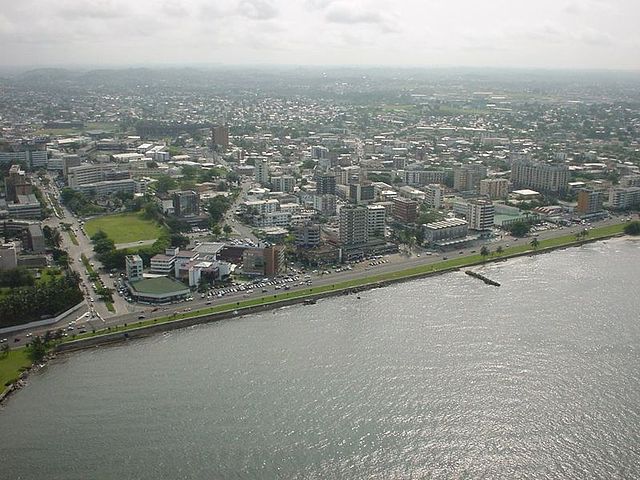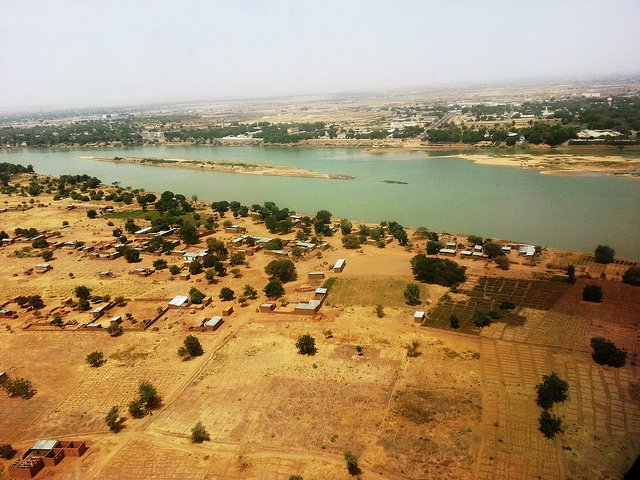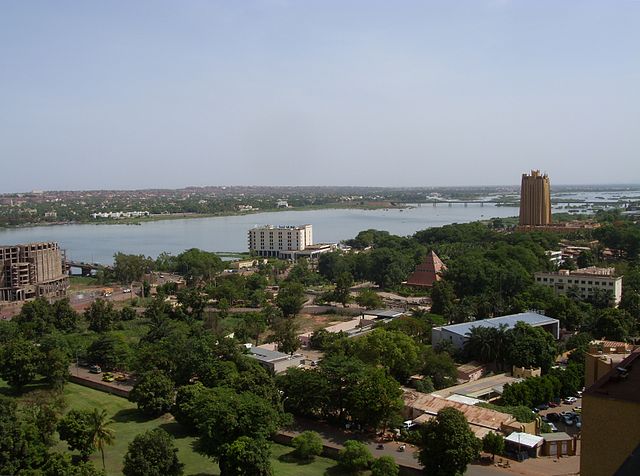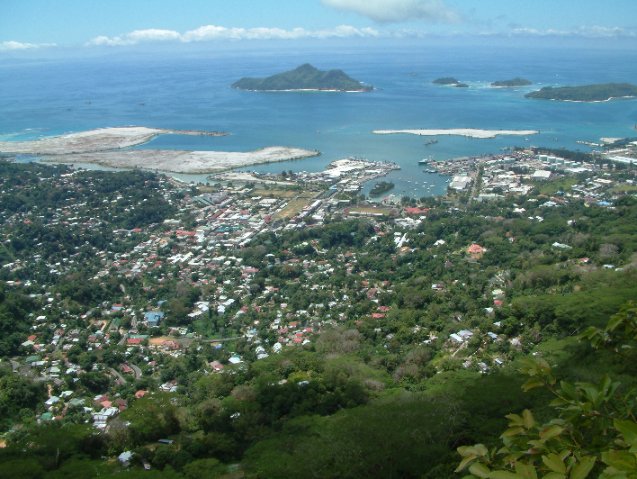As the second largest continent in the world, it should come as no surprise that Africa is a land of extremes. As such, it stands to reason that its cities are as varied as its cultures, languages, people, and history. Africa seems to have become the epicenter of trade, business, and development aid in the last 20 years or so. There are hundreds of thousands of ex-patriots living, working, volunteering, and teaching in every single one of its countries and territories. Some cities are nicer than others and the living situations and jobs offered can greatly affect the cost of living if you’re a foreigner. Despite being in the G20, South Africa is surprisingly affordable compared to places like Chad and the DRC which rank pretty low on the Human Development Index. Read on for the facts and figures on Africa’s most and least affordable cities for foreigners.
1) Johannesburg, South Africa
Topping off the list is Johannesburg which has been consistently ranked as one of the most affordable cities on the continent for the past several years. Despite the Rand losing ground to the US Dollar recently, Johannesburg is still a very livable city for foreigners with plenty of activities, history, and housing at affordable prices. While not as bad as a decade ago, safety issues are still a concern.
2) Tunis, Tunisia
The Arab Spring began in Tunisia and has definitely played a huge role in reshaping the political landscape of North Africa. Even before the regime change, Tunis was an affordable and pleasant city to live in with Mediterranean charm and a living history. Lack of confidence from businesses and investors has allowed the market to waver here but the city is still cheap and safe for foreigners.
3) Windhoek, Namibia
With just over 300,000 people, Namibia’s capital Windhoek can at times feel like a village that’s outgrown its boundaries. Despite Namibia’s relatively strong economy, Windhoek is still very affordable for an expat. Clean, safe, and with good infrastructure, it has ranked as one of the most affordable cities in Africa for years.
4) Blantyre, Malawi
While Lilongwe is the nation’s capital and largest city, Blantyre is considered the economic capital. While the center of commerce, Blantyre appears less hindered by the largesse that is often attached to politicians in Lilongwe and while infrastructure and services are not up to par with other comparably sized cities in southern Africa, more than 25,000 foreigners call it home.
5) Gaborone, Botswana
The capital of Botswana is another southern African city (and capital) that makes our list of affordable cities. Despite being one of the fastest growing cities in Africa, Gaborone has only 250,000 residents in the city limits, meaning foreigners have many choices when it comes to housing. Cheap transportation, services, and food options also make it the place to be.
6) Kampala, Uganda
One of the larger cities that’s affordable for foreigners, Uganda’s capital feels more like a “real” African city than some of our smaller, more sterile ones. With 2.5 million people, Kampala is not as clean, safe, and well-maintained as some other cities here, but expats can live in any number of neighborhoods at affordable prices. Other necessities and living expenses are inexpensive despite a large expat presence.
7) Cape Town, South Africa
Cape Town? Really? Yes. Yeah, Cape Town may be a bit pricey if you’re visiting and doing all the touristy things, but over 3.5 million live in the metro area that many consider to be the most beautiful city in Africa. With several universities and a fair amount of NGOs, it’s quite common for students and expats to share housing and other expenses.
8) Addis Ababa, Ethiopia
Sprawling Addis Ababa is one of the last places on our list of affordable African cities. Despite a lot of organizations, businesses, and government machinations being centered in Addis, the city’s various neighborhoods sprawl in every direction, and there are not as many “luxury” housing areas as in other places. Extremely inexpensive food, services, and transportation are available city-wide, making the city affordable for all.
9) Luanda, Angola
Angola’s capital has topped the list of most expensive cities for expats for several years now. Rampant corruption and instability make finding affordable housing near impossible. Since there is an enormous gap between the ultra wealthy and the millions of urban poor, basic housing with security costs thousands of dollars. And since most of the expats who live here are doing so on behalf of business and investors, the job usually foots the bill. I guess that’s the cost of having a country rich in diamonds and oil.
10) Kinshasa, DRC
Africa’s second largest city is also the capital of the Democratic Republic of Congo. One of the top failed states in the world, thousands flock to the capital every month seeking opportunity and straining the already crumbling infrastructure. With no prospects of work, instability and crime are rampant, meaning that foreigners have to pay a premium for security, housing up to Western standards, and private transportation.
11) Libreville, Gabon
Now home to over 700,000 people, Gabon’s capital has seen rapid growth in the past decade. Much like the previous cities, Libreville’s urban growth is due to the country’s oil and mineral resources, meaning most of the foreigners who live here are involved in the resource trade or international business, pushing up the cost of housing and services.
12) N’Djamena, Chad
Another extremely expensive city in an extremely poor country. One of Africa’s 14 landlocked states, Chad lies seemingly at the heart of the continent with no seaport or rail connections. That means that everything that comes into the country from car parts to toilet paper has to be imported via land routes through multiple countries or by air, neither of which is cheap. Couple that with poor living conditions and you’ll pay a pretty penny for decent accommodation, making N’Djamena extremely expensive for expats.
13) Bamako, Mali
Mali was once the jewel of West Africa with thousands of tourists coming to see the ancient city of Timbuktu, the Great Mosque of Djenne, and Dogon Country, Mali’s tourism industry has all but dried up since the Tuareg rebellion that was co-opted by Islamists after an army coup in 2012. Now, prices of accommodation and goods have increased due to the number of foreigners working in NGOs and on behalf of governments, making once-affordable Bamako sadly, not so anymore.
14) Victoria, Seychelles
Just so we’re clear, the Seychelles have never been one of Africa’s more affordable places to travel or live. Known for luxurious resorts and private white sand beaches, it’s no surprise that the capital of Victoria comes with a premium for expats who want to settle there. The fact that all goods have to come via plane or ship doesn’t help things either.
15) Lagos, Nigeria
While millions live in Lagos on very meager wages, this is unfortunately not the case for the many foreign residents of the city which remain clustered on Lagos Island or Victoria. Luxury accommodations, security guards, and pricey commercial areas keep the cost of living high despite the conditions of the rest of the city.
Want to discover the finer side of Africa? Sign up for our weekly newsletter.
